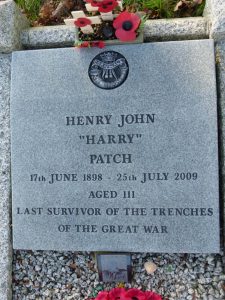The Great War Centenary in 2018 had set the nation to thinking. Every one of the heroes who served during that bloody conflict of 1914-18 has now passed away, the last survivor being Henry John “Harry” Patch, who died on 25th July 2009, aged 111. Luckily, Harry’s memories live on thanks to his 2007 autobiography, ‘The Last Fighting Tommy’, but the recollections of many have gone to the grave with them, or, where they have been passed on to relatives, been confused or diluted by telling and re-telling. With the soldiers of World War Two rapidly aging, we’ve suddenly woken up to the fact that now is the time to ask them about their experiences, and make sure that they are recorded for the benefit of future generations, who will never have the great privilege of meeting the fine men and women who served their country.

Now is the moment to start researching those heroes who have already gone. The main difficulty with ancestral research is the fact that key resources are spread far and wide. Many can be found at The National Archives, of course, but in most cases, they are not available online, and can only be obtained by visiting TNA in person or by hiring a private researcher. Other resources may only be available in particular local or regimental archive collections or museums, and may not be clearly indexed. That is why the Forces War Records website is a good place to start collating information about your military ancestor, as millions of records from all over the country have been collected together in one place, and can easily be searched by last name. It saves a lot of time, effort and money to be able to access this sort of one-stop-shop.
No matter in what avenue your family member served – whether they joined the Forces, did what they could in the factories and fields the Home Front, travelled to tend the sick on the battlefields of the Western Front or worked for the government – theirs is a completely unique story. By researching and sharing their role, deeds and legacy, you will not only ensure that their memory remains green, but also add to our store of national knowledge. Britain has a rich and chequered history, and it is our duty keep bolstering it in any small ways we can. Records, photos, newspaper cuttings, letters, postcards, medals and souvenirs of war; all of these are worth finding and preserving. Now is the time to record our own memories, and research those of our long-gone family members.
Visit Forces War Records today to start your own personal genealogical quest!


